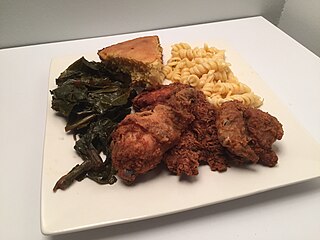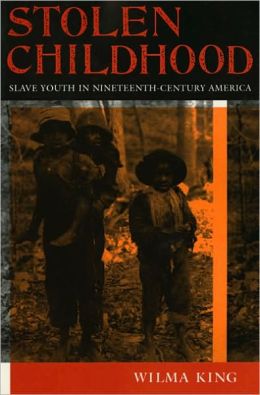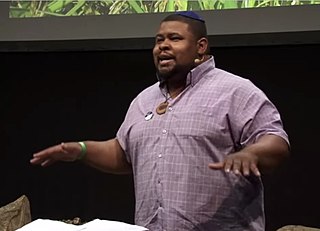
Soul food is the ethnic cuisine of African Americans. Originating in the American South from the cuisines of enslaved Africans transported from Africa through the Atlantic slave trade,soul food is closely associated with the cuisine of the Southern United States. The expression "soul food" originated in the mid-1960s when "soul" was a common word used to describe African-American culture. Soul food uses cooking techniques and ingredients from West African,Central African,Western European,and Indigenous cuisine of the Americas.

The cuisine of the Southern United States encompasses diverse food traditions of several subregions,including cuisine of Southeastern Native American tribes,Tidewater,Appalachian,Ozarks,Lowcountry,Cajun,Creole,African American cuisine and Floribbean,Spanish,French,British,and German cuisine. In recent history,elements of Southern cuisine have spread to other parts of the United States,influencing other types of American cuisine.
Feminist archaeology employs a feminist perspective in interpreting past societies. It often focuses on gender,but also considers gender in tandem with other factors,such as sexuality,race,or class. Feminist archaeology has critiqued the uncritical application of modern,Western norms and values to past societies. It is additionally concerned with increasing the representation of women in the discipline of archaeology,and reducing androcentric bias within the field.
Marie Thérèse Coincoin,born as Coincoin,also known as Marie Thérèse dite Coincoin,and Marie Thérèse Métoyer,was a planter,slave owner,and businesswoman at the colonial Louisiana outpost of Natchitoches.
The Levi Jordan Plantation is a historical site and building,located on Farm to Market Road 521,4 miles (6.4 km) southwest of the city of Brazoria,in the U.S. state of Texas. Founded as a forced-labor farm worked by enslaved Black people,it was one of the largest sugar and cotton producing plantations in Texas during the mid-19th century,as well as a local center of human trafficking.
In social science,foodways are the cultural,social,and economic practices relating to the production and consumption of food. Foodways often refers to the intersection of food in culture,traditions,and history.
Sambizanga is a 1972 film directed by Sarah Maldoror and written by Maldoror,Mário Pinto de Andrade,and Maurice Pons,based on the 1961 novella The Real Life of Domingos Xavier by JoséLuandino Vieira. Set in 1961 during the onset of the Angolan War of Independence,it follows the struggles of Angolan militants involved with the Popular Movement for the Liberation of Angola (MPLA),an anti-colonial political movement. Maldoror co-wrote the screenplay with her husband,who was a leader within the MPLA. Sambizanga was the first feature film produced in Angola and by any Lusophone African country. Maldoror was the first woman to make a feature film in Africa.

Tina Campt is Roger S. Berlind ’52 Professor of Humanities at Princeton University. Campt previously held faculty positions as Owen F. Walker Professor of Humanities at Brown University,Director of the Barnard Center for Research on Women and Ann Whitney Olin Professor of Africana and Women's Studies at Barnard College,Professor of Women's Studies at Duke University,and Professor of Women's Studies at the University of California,Santa Cruz. Campt is the author of four books:Other Germans:Black Germans and the Politics of Race,Gender and Memory in the Third Reich,Image Matters:Archive Photography and the African Diaspora in Europe,Listening to Images,and A Black Gaze:Artists Changing How We See.
Barbara J. Heath is a professor in the Department of Anthropology at The University of Tennessee,Knoxville who specializes in historical archaeology of eastern North America and the Caribbean. Her research and teaching focus on the archaeology of the African diaspora,colonialism,historic landscapes,material culture,public archaeology and interpretation,and Thomas Jefferson.
Marika Sherwood is a Hungarian-born historian,researcher,educator and author based in England. She is a co-founder of the Black and Asian Studies Association.

Stolen Childhood:Slave Youth in Nineteenth-Century America is a 1995 history book about nineteenth century slave children in America by Wilma King. As the first full-length book on the subject,it began the scholarship of slave childhood. The book uses historical documents to argue that enslaved children were deprived of experiences now understood to constitute childhood,due to early work responsibilities,frequent bodily and emotional trauma,and separations from family. The book covers themes of the children's education,leisure,religion,transitions to freedmen,and work expectations. It was published in the Indiana University Press's Blacks in the Diaspora series,and a revised edition was released in 2011.

Slavery in Cuba was a portion of the larger Atlantic slave trade that primarily supported Spanish plantation owners engaged in the sugarcane trade. It was practiced on the island of Cuba from the 16th century until it was abolished by Spanish royal decree on October 7,1886.
Delores Seneva Williams was an American Presbyterian theologian and professor notable for her formative role in the development of womanist theology and best known for her book Sisters in the Wilderness:The Challenge of Womanist God-Talk. Her writings use black women's experiences as epistemological sources,and she is known for her womanist critique of atonement theories. As opposed to feminist theology,predominantly practiced by white women,and black theology,predominantly practiced by black men,Williams argued that black women's experiences generate critical theological insights and questions.
Carole Boyce Davies is a Caribbean-American professor of Africana Studies and English at Cornell University,the author of the prize-winning Left of Karl Marx:The Political Life of Claudia Jones (2008) and Black Women,Writing and Identity:Migrations of the Subject (1994),as well as editor of several critical anthologies in African and Caribbean literature. She is currently the Frank H. T. Rhodes Professor of Humane Letters,an endowed chair named after the 9th president of Cornell University. Among several other awards,she was the recipient of two major awards,both in 2017:the Frantz Fanon Lifetime Achievement Award from the Caribbean Philosophical Association and the Distinguished Africanist Award from the New York State African Studies Association.
Whitney Battle-Baptiste is an American historical archaeologist of African and Cherokee descent. She is an associate professor at the University of Massachusetts Amherst and director of the W.E.B. Du Bois Center at the University. Battle-Baptiste's research focuses on "how the intersection of race,gender,class,and sexuality look through an archaeological lens". She is also the president of American Anthropological Association.

Michael W. Twitty is an African-American Jewish writer,culinary historian,and educator. He is the author of The Cooking Gene,published by HarperCollins/Amistad,which won the 2018 James Beard Foundation Book Award for Book of the Year as well as the category for writing.

The Williamsburg Bray School was a school for free and enslaved Black children founded in 1760 in Williamsburg,Virginia. Opened at Benjamin Franklin's suggestion in 1760,the school educated potentially hundreds of students until its closure in 1774. The house it first occupied is believed to be the "oldest extant building in the United States dedicated to the education of Black children".

The Virginia House-Wife is an 1824 housekeeping manual and cookbook by Mary Randolph. In addition to recipes it gave instructions for making soap,starch,blacking and cologne.







